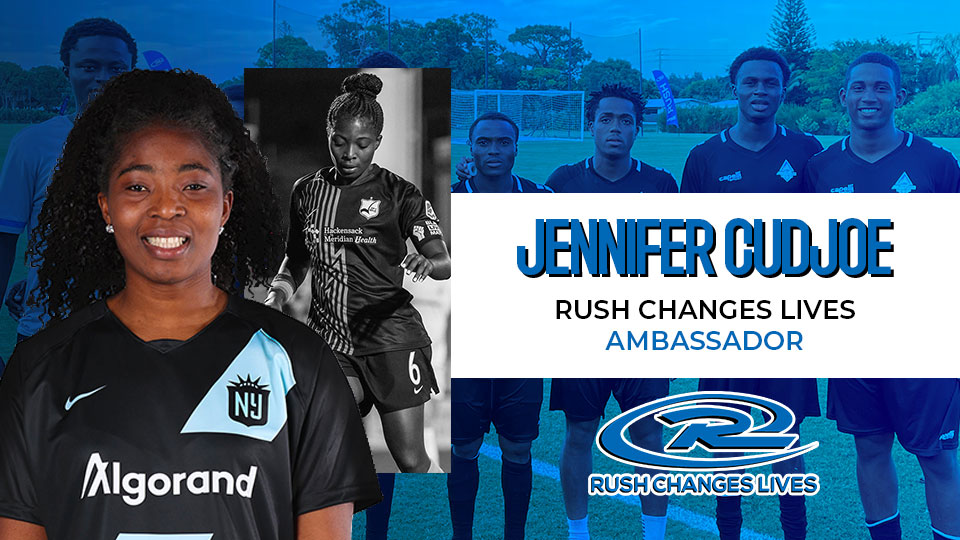Jennifer Cudjoe changing lives on the field—and off it, too
When Jennifer Cudjoe left her homeland determined to play soccer in the United States a decade ago, the Ghanaian didn’t have a team of people to help her find a school and navigate the mountains of paperwork and prerequisites necessary to enroll.
Fortunately, the current NY/NJ Gotham FC midfielder had a sister, but without her, Cudjoe admits the process would’ve been much more daunting.
“She actually saw the way somebody did it for her,” said Cudjoe, whose older sister had already been through the process of applying for schools in the U.S.—and successfully so. “She actually helped me fill out my paperwork,” Cudjoe said. “I had no idea what I was doing. So when I got here and I started getting more of an understanding, asking questions, and just literally getting to know more about how to help college players and all of that.”
Now, Cudjoe is helping others, working as an ambassador for the Rush Changes Lives program.
When she’s not playing, Cudjoe is giving back to her community in many ways, including helping aspiring soccer players from her homeland find U.S. colleges that are willing to put them on a roster and give them a chance to play and get a first-rate education.
“Being a part of Rush Changes Lives has meant a lot to me,” Cudjoe said. “It felt like a dream come true. I’ve always had that feeling of wanting to be something, you know, be part of something.”
Cudjoe, who shares footage of Ghanaian players with college coaches in the U.S., wasn’t shy about stating the kind of fulfillment she’s experienced by working with the program.
“It means a lot that I can actually look back and actually take money from my own pocket and buy shoes for somebody—or even provide some sort of accommodation for some event,” she said. “Even the little things mean so much because, at the end of the day, I’m changing someone’s life. This is the biggest impact on others’ lives that I feel like I’ve accomplished in my life.”
Cudjoe also likes providing encouragement and emotional support for fellow Ghanaian players who end up in the U.S., remembering how difficult it was for her when she first started playing on the collegiate level.
“It wasn’t easy,” she said. “Even the decision to leave my family and just focus on my dreams was difficult. I feel like for me as a younger player I had this picture in my head like you have your future in your hands, and you kind of have to have something that you hold onto to keep you. And then there were times when I missed home. But I wanted to be better, I wanted to be able to get to the next step. So I think, I just let myself go out and make memories, make friends and just learn from them to be able to navigate through my process.”

